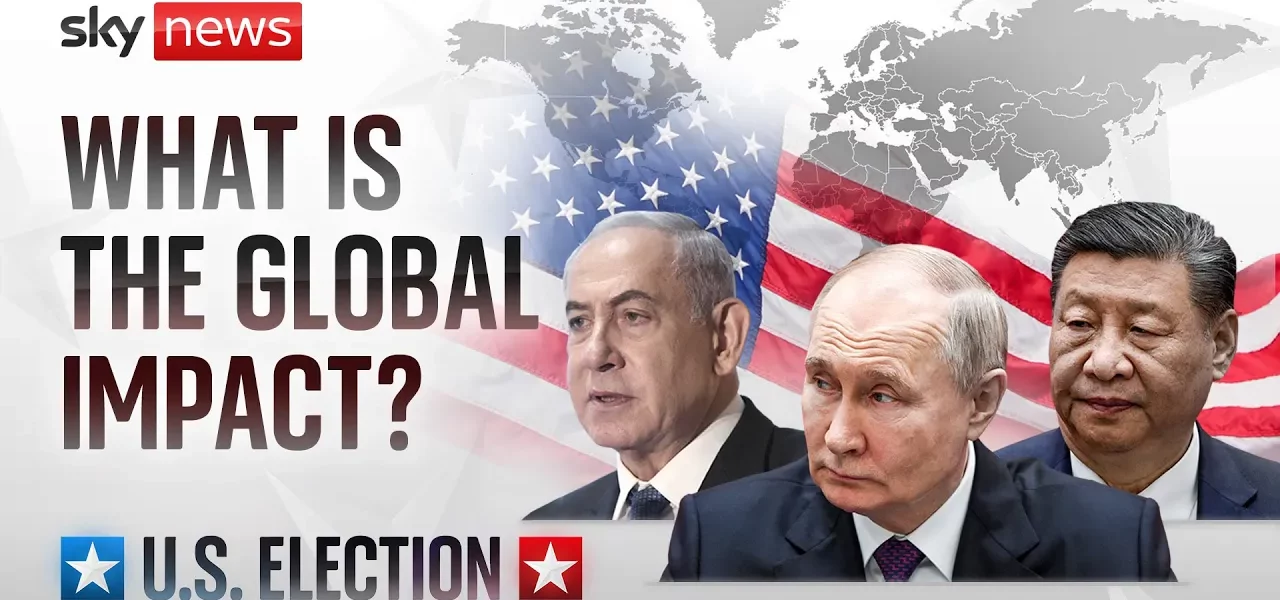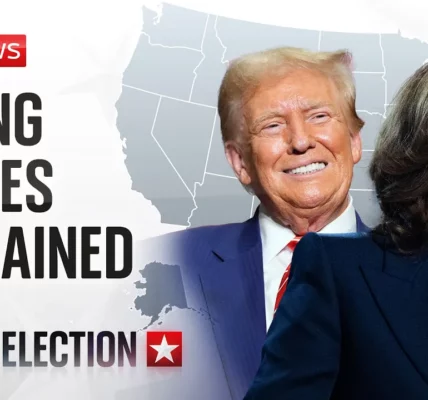The Global Impact of the US Presidential Election: Trump vs. Harris

The upcoming US presidential election is poised to have significant global implications. With divergent foreign policy perspectives, Donald Trump and Kamala Harris represent contrasting approaches to international relations, particularly concerning allies and adversaries. This article delves into the potential consequences of their respective presidencies on global affairs.
Introduction
The US presidential election is not just an American event; it reverberates across the globe. The candidates, Donald Trump and Kamala Harris, have markedly different attitudes and policies that could reshape international alliances, conflicts, and the geopolitical landscape. Understanding these differences is crucial as the world watches closely, given that the actions taken by the next US president could have far-reaching consequences beyond the borders of the United States.
Foreign Policy Overview
The foreign policy strategies of Trump and Harris reflect their political ideologies and visions for America’s role in the world. Each candidate’s approach to key international issues could lead to vastly different outcomes.
Middle East Relations
One of the most significant areas of foreign policy is the Middle East. Historically, US presidents have aimed to foster peace in this region, yet most have struggled to achieve lasting solutions.
- Donald Trump’s Achievements: During his presidency, Trump successfully facilitated the Abraham Accords, normalizing relations between Israel and several Arab nations, including the UAE, Bahrain, Sudan, and Morocco. His recognition of Jerusalem as the capital of Israel was another pivotal move that delighted Israeli Prime Minister Benjamin Netanyahu.
- Kamal Harris’s Approach: Harris has expressed strong support for Israel while advocating for humanitarian efforts in Gaza. Her administration would likely continue the policies of the Biden administration, emphasizing de-escalation and humanitarian aid while maintaining military support for Israel.
Iran’s Role in the Middle East
Iran remains a central player in Middle Eastern geopolitics. Harris has identified it as a significant national security threat, but her foreign policy objectives remain less defined compared to Trump’s more aggressive stance against Tehran. Should she win, her administration may follow a similar trajectory as Biden’s, focusing on diplomacy while managing Iran’s influence.
Impact on the Ukraine Conflict
The ongoing conflict in Ukraine is another critical issue that will be shaped by the upcoming election. Both candidates have presented contrasting strategies regarding US involvement.
Kamala Harris’s Position
Harris has pledged to stand firmly with Ukraine and NATO, emphasizing a unified global response to Russian aggression. Her administration would likely continue providing support to Ukraine, though the level of military assistance remains uncertain.
Donald Trump’s Potential Policies
Trump has boldly claimed he could end the war in Ukraine within 24 hours of taking office, a statement that raises skepticism among analysts. His approach may involve reducing military aid to Ukraine, which could inadvertently strengthen Russia’s position in the region and embolden its pursuit of territorial gains.
Economic Policies and Global Trade
Trade relationships and economic policies will also be significantly influenced by the election outcome, with implications for global markets and alliances.
Trump’s Protectionist Stance
Trump’s America First policy leans heavily towards protectionism, potentially imposing tariffs that could affect European economies. His past threats to withdraw from NATO raise concerns about America’s commitment to collective security.
Harris’s Approach to Trade
In contrast, Harris is expected to maintain a more stable trade policy, albeit with a focus on protecting American manufacturing. This could lead to continued tensions with Europe as they adapt to a more protectionist environment.
China’s Strategic Position
The relationship between the United States and China is a pivotal issue that will influence global dynamics, regardless of who wins the presidency.
Harris’s Tough Stance on China
Harris is likely to continue the tough economic policies initiated by Biden, focusing on countering China’s influence in Asia and beyond. This includes maintaining tariffs and strengthening alliances to combat Chinese expansionism.
Trump’s Volatile Relationship with China
Trump’s unpredictable approach could lead to increased tensions. His rhetoric about China and potential tariffs could affect global supply chains and economic stability. The prospect of his presidency may create uncertainty for China, which could influence its foreign policy decisions.
Conclusion
The upcoming US presidential election is set to have profound implications for global politics. Whether Trump or Harris wins, the foreign policy landscape will shift, impacting relationships with key allies and adversaries. Trump’s approach may lead to greater unpredictability and potential instability, while Harris is likely to offer a more consistent and stable foreign policy framework. As the world watches, the choice made by American voters will resonate far beyond the borders of the United States, shaping the future of international relations. For more insights on global politics and foreign policy, explore our related articles.
“`




